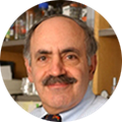
Prof. Robert Weinberg Whitehead Institute for Biomedical Research, USA
4 TalksBiography
Robert A. Weinberg was born in Pittsburgh, Pennsylvania in 1942, the son of refugees recently arrived from Nazi Germany. He received his B.S. (1964) and Ph.D. (1969) degrees in Biology from the Massachusetts Institute of Technology in Cambridge, Massachusetts and conducted postdoctoral research at the Weizmann Institute in Rehovoth, Israel... read moreand the Salk Institute in La Jolla, California. In 1972, he was invited to return to MIT to join the recently formed MIT Center for Cancer Research. In 1982, he was appointed Professor of Biology at MIT and also became one of the five original Members of the Whitehead Institute for Biomedical Research, also in Cambridge, Massachusetts. He is currently an American Cancer Society Research Professor and Daniel K. Ludwig Professor for Cancer Research at MIT, and Director of MIT’s Ludwig Center for Cancer Research.
In 1979, Dr. Weinberg and his colleagues provided the first demonstration that the genomes of chemically transformed cells carry a mutant oncogene, which they subsequently demonstrated was a ras oncogene. Several years later, they showed that this oncogene differed from a corresponding normal cellular gene by a single base change – a mutant oncogene, thereby discovering, for the first time, a mutation that is causally important in human cancer formation. In 1986, his laboratory participated in the isolation of the first known tumor suppressor gene, the retinoblastoma gene, termed Rb. In 1999, his laboratory created the first genetically defined human tumor cells, utilizing the recently cloned gene encoding the human telomerase enzyme. In 2004, they demonstrated that Twist, a gene normally involved in early embryogenesis, is used by cancer cells in order to acquire invasive and metastatic traits. His current work is focused on the mechanisms by which cancer cells develop highly malignant traits, specifically those that underlie the complex process of metastasis.
Dr. Weinberg is the author or editor of six books and more than 350 articles. Three of his books, intended for a lay audience, are “One Renegade Cell”, "Racing to the Beginning of the Road: The Search for the Origin of Cancer" and "Genes and the Biology of Cancer,", the latter co-authored with Dr. Harold E. Varmus. Most recently, he completed “The Biology of Cancer”, a textbook for graduate and medical students. He is an elected Member of the U.S. National Academy of Sciences, the U.S. Institute of Medicine, and Fellow of the American Academy of Arts and Sciences and received the U.S. National Medal of Science in 1997.
Among Dr. Weinberg's many honors and awards are the Discover Magazine 1982 Scientist of the Year, the U.S. National Academy of Sciences/U.S. Steel Foundation Award in Molecular Biology, the Sloan Prize of the General Motors Cancer Research Foundation, the Bristol-Myers Award for Distinguished Achievement in Cancer Research, and the 1997 (U.S.) National Medal of Science, and the 2021 Japan Prize.
